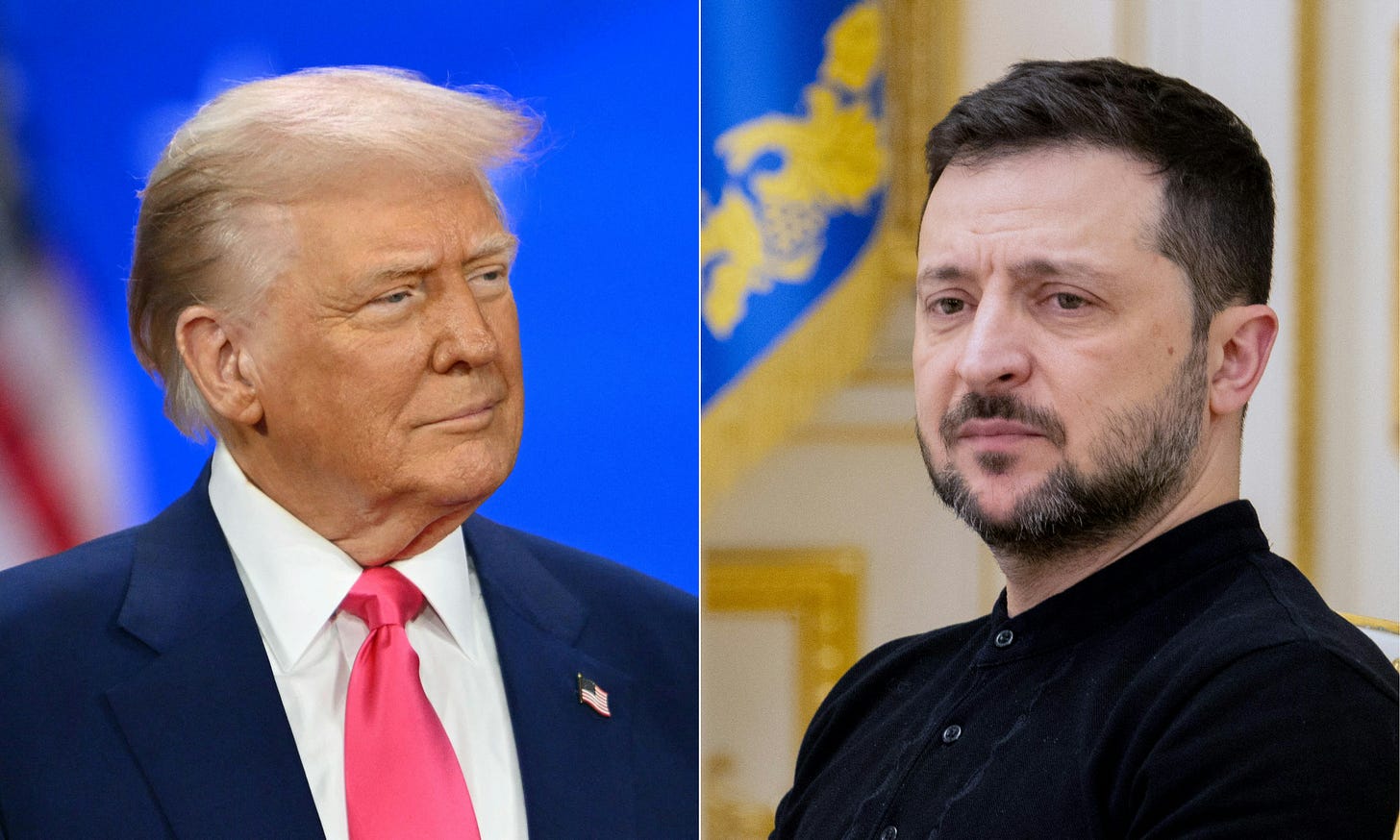Does Trump Want to Be the President Who Lost Ukraine?
He can still avoid his Afghanistan.
DONALD TRUMP HATES NOTHING more than a “loser.” To him, losing is shameful and the worst insult he can imagine. But he could end up being tagged as a loser for the way he has abandoned more than three decades of U.S. support for Ukraine’s sovereignty. He is walking away from a tougher European sanctions package that he essentially encouraged, and is now telling Russia and Ukraine they need to work it out themselves. As he well knows, Russia doesn’t want a ceasefire or to compromise any of its ill-gotten gains.
Almost as shameful, eighty senators are co-sponsoring a strong, veto-proof bill introduced by Sen. Lindsey Graham to impose secondary sanctions on entities that enable Russia’s flagrant violations of international law in Ukraine. But Graham’s bill isn’t moving. It’s reasonable to believe it’s being held in reserve to provide political cover, which allows senators to say they are tough on Russia and supportive of Ukraine while avoiding any pressure on the president. Hypocrisy, sadly, remains a cornerstone of Senate business.
For more than three decades, through administrations of both parties, the United States has affirmed Ukraine’s sovereignty. The 1994 Budapest Memorandum, signed by President Clinton along with the United Kingdom and Russia, committed the United States to uphold Ukraine’s territorial integrity in exchange for its surrender of nuclear weapons.
Now President Trump is apparently growing frustrated with the war in Ukraine and considering washing America’s hands of it altogether. When the United States withdrew from Afghanistan in 2021, many observers warned that the chaotic exit damaged America’s credibility and weakened its global standing. That moment is now etched into President Biden’s legacy. If President Trump were to withdraw U.S. support from Ukraine too abruptly, he could face a similar judgment. Would he lose Taiwan next?
Some argue that stepping back is a way to avoid escalation, and that Trump is actually protecting Europe and the West. But we have heard this before. In 1938, British Prime Minister Neville Chamberlain returned from meeting Hitler in Munich declaring “peace for our time.” That short-term concession did not prevent war. It only delayed it.
President Zelensky warned against repeating that history in his 2022 remarks at the Munich Security Conference. He urged the West not to appease aggression. That warning now seems more urgent than ever.
A recalibration of America’s role in the war is possible, and even reasonable. Ukraine is far more resilient than it was in 2022, with a stronger domestic arms industry and deeper ties to Europe. But a precipitous American exit—especially one that halts intelligence cooperation or the flow of critical weapons—would affirm for Putin that time is on his side. It could fracture Ukraine’s battlefield cohesion, strain European supply chains, and open the door to renewed Russian advances both in Ukraine and elsewhere.
Despite Putin’s overtures to Trump, Russia’s objectives remain unchanged. Moscow continues to occupy Ukrainian territory, target civilian infrastructure, and destabilize the broader European security order. Just as it did in Crimea in 2014, the Kremlin seeks to redraw borders through force. Others, including Beijing, are watching to see whether they succeed.
Putin has also made clear that his ambitions extend beyond Ukraine, including a rollback of NATO’s presence in Eastern Europe. A failed Ukrainian defense could encourage him to test NATO’s Article 5 commitments, especially in the Baltic states. Preventing that scenario now, through sustained support for Ukraine, is far less costly than confronting it later with American troops on the ground.
As someone who recently discovered Ukrainian roots in my own family, I feel a deeper connection to the courage of Ukraine’s people. Their strength lies not only in their weapons, but in their will. They have not asked the United States to fight for them—only to stand with them. They have borne immense casualties, held the line for Europe, and proven their resolve beyond doubt.
President Trump often speaks the language of power. Lasting power is measured not in threats or slogans, but in the consistency of our commitments and the clarity of our values. Standing with European allies who have shown a willingness to engage with his administration and who still believe in American leadership is not weakness, it is the foundation of deterrence. Showing leadership and resolve now is the surest way to avoid being remembered as a loser.




